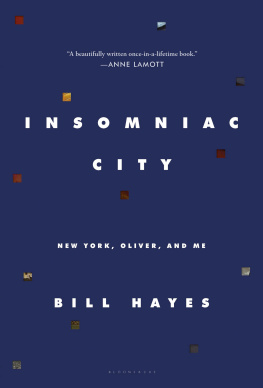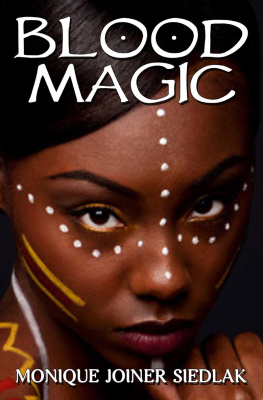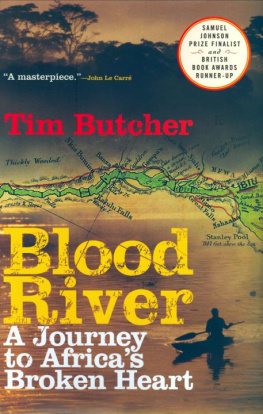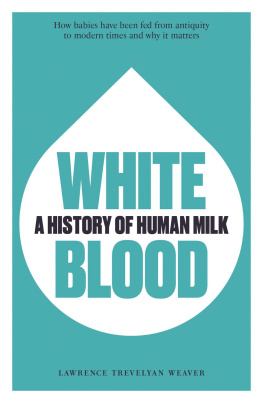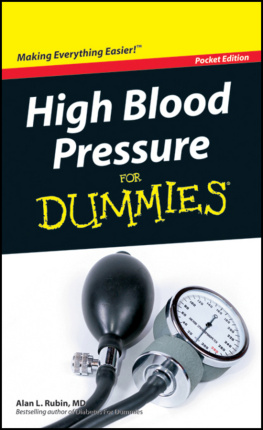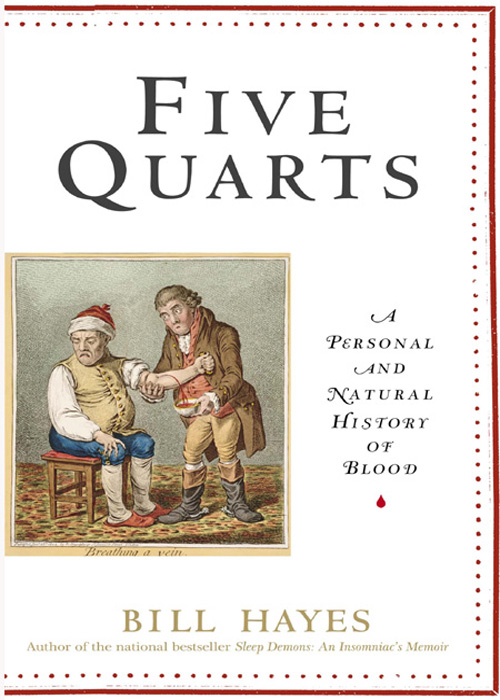
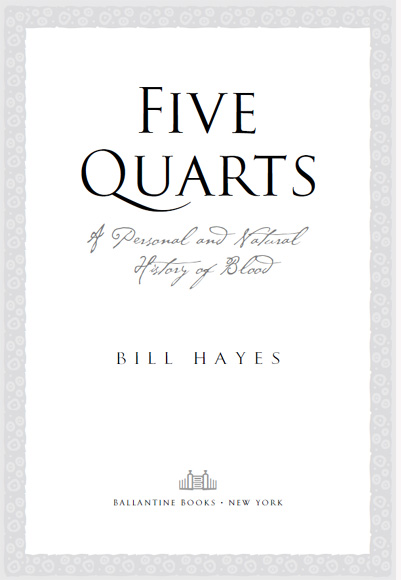
CONTENTS
For Steve Byrne
Press forth, red drops
confession drops,
Stain every page
WALT WHITMAN,
Calamus, 1860
ONE
Gorgons Blood
THE FIRST DROP STAINS THE PALE, CLAMMY FLESH. ITS AS if the skinned potato, not my sliced finger, is bleeding. Were the cut anywhere else on my body Id have it under the faucet by now or washed with soap, yet I persist in sucking it. The blood is warm, warmer than saliva. This is what 98.6 degrees Fahrenheit feels like on the tongue.
Theres always a momentless than a moment, actually; however long it takes an instinct to fire, as hand flies to mouthwhen I think the blood will taste good (an expectation Id never have, it strikes me, for other bodily fluids): as earthy as cooked beets or sweet as cassis. Wrong again.
Okay, so it doesnt taste good, but it doesnt taste bad, either. If it did, all creatures would be repulsed from licking clean their wounds. Bloods no worse than a lick of sweat yet also not something to be savored. That it tastes faintly like metal, as some people say, is not an undeserved analogy; blood is iron-rich. Two-thirds of the bodys store of iron can be found there. Others say with great specificity that it tastes like a mouthful of change (have they tasted mouthfuls of change?), suggesting, too, that blood is currency, which it certainly is, a donated pint at a blood bank being valued at more than a hundred dollars, according to the FDA. Yet both of these analogies are imprecise, for pennies have a different flavor than quarters, dont they? And theres a world of difference between the lip of an aluminum beer can and a sterling silver teaspoon.
Im reminded of my high school friend Melaine, now a mother of three, who has worked for twenty years as a technician in a hospital surgical unit and has, to her profound regret, acquired a fine nose for blood. Like body odor, she tells me, everyones smells different; some blood is pungent and sickening, some almost fruity. She sees blood as a constantly brewing stew, a mix of red blood cells, white blood cells, and platelets, all floating in plasma, the watery medium that carries nutrients to, and waste from, the bodys one hundred trillion cells. This basic recipe is then often spiced with medications, alcohol, nicotine, or other ingredients. Melaine thinks that each persons blood is an olfactory signature, which leads me to think that no two samples would taste alike, either.
According to historians, Roman gladiators drank the blood of vanquished foes to acquire their strength and courage (a practice reputedly also followed by the nineteenth-century Indonesian headhunters, the Tolalaki, among other cannibals). But, if true, how exactly did the gladiators drink this blood: in bejeweled loving cups or straight from the jugular? Lapping it off a felled mans chest, perhaps? In any event, why didnt these victorious gladiators drink their own blood instead? They were the winners, after all.
Nitpicking about how it was drunk, whose blood was braver, and so forth, however, is missing a larger point. What makes the gladiator behavior truly arresting is this: They didnt fear contact with blood. On the contrary, they gloried in it. Even the spectators were allowed, on occasion, to rush the arena to join blood-drinking free-for-alls. Sated, a gladiator or spectator may have even taken some to later sell. Gladiators blood, both a cure for certain diseases and a good-luck talisman for new brides, was a valuable commodity. Even so, in those days, the most prized blood of all was not that of a man but of a mythical creature, as found in the tale of Asclepius, god of medicine.
Asclepius, the illegitimate child of a beautiful maiden and the god of light, Apollo, has one of the juiciest backstories in classical mythology. Hed not even been born yet when his mother was slain by his father, whod become enraged upon learning she had been unfaithful. Apollo snatched the baby from her womb and sent his son to be raised by a centaur named Chiron. From the half-man/half-horse, Asclepius received his medical training, learning to mix elixirs, use incantations, and perform surgeries. From his aunt Athena, the goddess of war and wisdom, he received his most powerful potion: blood from the veins of Medusa, the snake-haired Gorgon whose face turned beholders to stone. A single drop of her blood could either kill or cure a human. If drawn from the left side of the Gorgons body, the blood brought instant death; if from the right side, it miraculously restored life. This duality was an especially prescient invention of ancient mythmakers, for we now understand in cellular detail how blood can both bear disease with deadly efficiency and save a persons life, as with vaccinations or transfusions. Indeed, Asclepius revived a man named Hippolytus by giving him the precious fluid, which may now be viewed as the earliestalbeit mythicalinstance of a blood transfusion.
Asclepiusno fool herealized there was profit to be made from Gorgons blood: gold, specifically, which he demanded in exchange for raising the dead. This unethical practice infuriated Zeus, king of the gods, who sent down a thunderbolt, killing the doctor. No matter. Zeus cooled down, realized the overall good Asclepius had brought to humankind, and raised him to godhood. Asclepius went on to father five daughters, all personifications of healing, including Panacea, the divine cure-all. She reigns to this day, in the private domain of my household at least, as the goddess of minor kitchen mishaps. I invoke her name as I wind a Band-Aid around my finger.
In practice, ancient physicians believed that blood was the dwelling place of the Vital Spirit that animated human beingsthe stream in which emotion, character, and intelligence swam. This life force was thought to be circulated by the heart, which was falsely assumed to function as the bodys governing organ (what we now know as the role of the brain). The Roman poet Virgil offered a metaphysical slant. Noting that veins under the skin looked purple, a color lost when blood was shed and a person died, he concluded that the blood must therefore house the human soulthe purpurea anima, or purple soul, as he wrote in The Aeneid. It was a reverential perspective almost beyond imagination today, when blood is widely considered hazardous waste material.
I find Virgils conception marvelous, even though, truth be told, my own veins look aquamarine, not purple. The notion that blood is intricately linked with the soul has a deep resonance for me, above and beyond the fact of my strict Catholic upbringing. Blood, Ive found, leaves mnemonic markers at each milestone or phase in life, a way to retrace ones journey. Look back, youll see. The marks, whether literal or metaphorical, may not be visible at first, like fingerprints before theyre dusted, but then, upon second inspection, when the light is shone just so, your whole life looks spectacularly stained in red.
Were born in blood. Our family histories are contained in it, our bodies nourished by it daily. Five quarts run through each of us, on average, along some sixty thousand miles of arteries, veins, and capillaries. Blood permeates religion, as it does the nightly news. Action films are bathed in it. Love songs and poems testify to its thunder. Modern medicines can thin it out, thicken it up, or redirect it to sexually interesting places. With the first shaving nick or menstrual period, blood initiates us into adulthood. It makes us blush, bruise, and go pale. It may leave a trace when a womans virginity is lost, and a drenching while giving birth. Blood is used to describe a range of emotions: It quickens, races, boils, curdles, runs cold, and sizzles, hot-blooded, under the skin. To say I feel my blood is to say one feels alive, vibrant, every cell pulsing.
Next page

